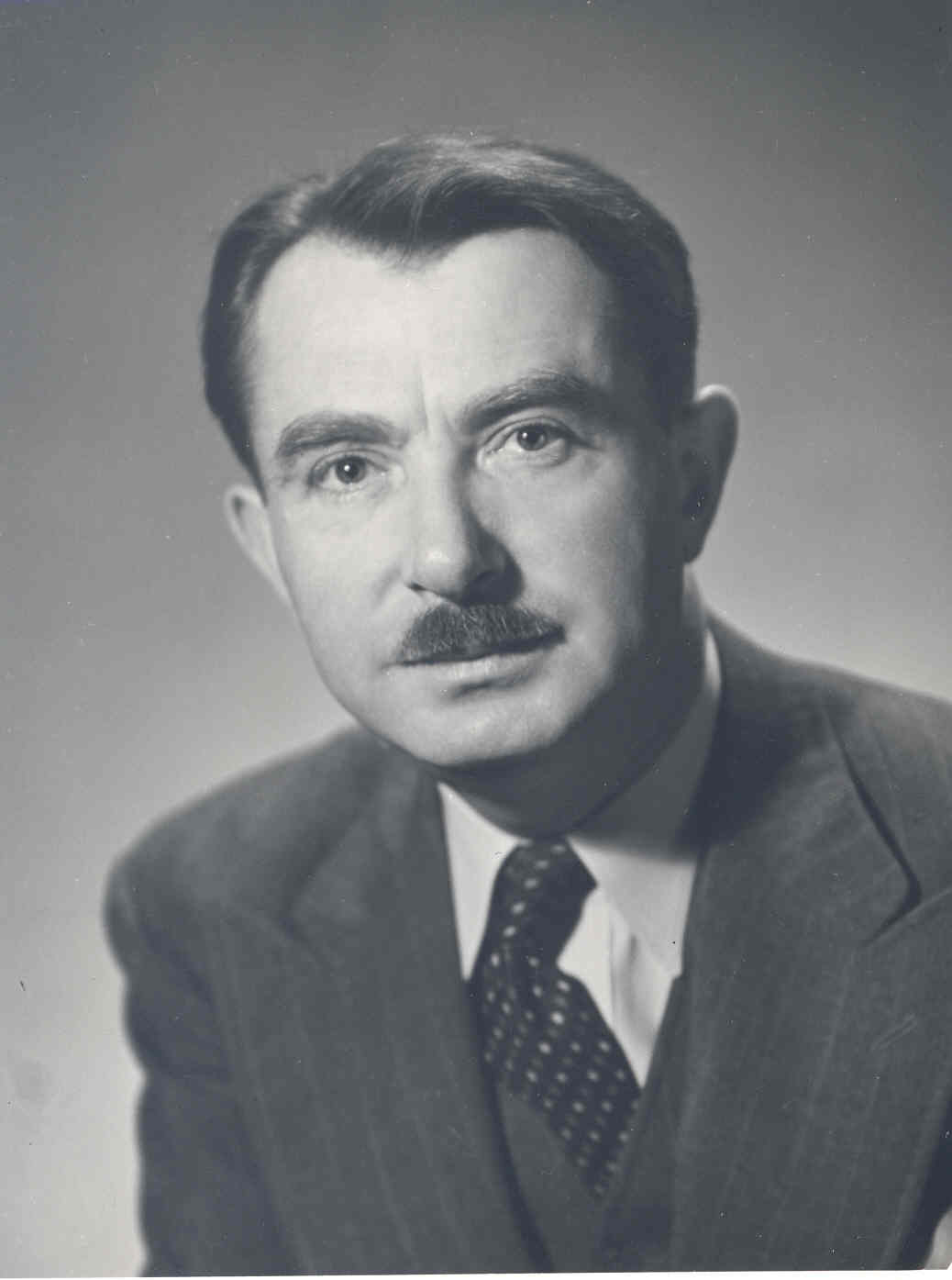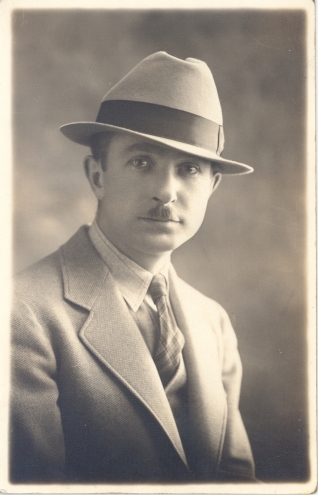Joseph B. Salsberg
 Joseph Baruch Salsberg was a labour union leader, political activist, politician, insurance salesman, and journalist. He was also active in various Jewish organizations, including the Canadian Jewish Congress (CJC), the Jewish Federation of Greater Toronto, and the New Fraternal Jewish Association. Well-remembered by contemporaries, such as Sam Lipshitz, as a “champion of the people,” he was committed to social justice, the plight of the working-class, and the preservation of Jewish culture.
Joseph Baruch Salsberg was a labour union leader, political activist, politician, insurance salesman, and journalist. He was also active in various Jewish organizations, including the Canadian Jewish Congress (CJC), the Jewish Federation of Greater Toronto, and the New Fraternal Jewish Association. Well-remembered by contemporaries, such as Sam Lipshitz, as a “champion of the people,” he was committed to social justice, the plight of the working-class, and the preservation of Jewish culture.
J. B. was born in Lagov, Poland on 5 November 1902 to Abraham and Sarah-Gittel Salsberg. Abraham immigrated to Toronto in 1910 and J. B. followed with his mother and two younger sisters, Pearl and Lillian, in 1913. They settled at 73 Cecil Street and later moved a few doors down to 59 Cecil Street to accommodate the growing family. Four more children were born: Nathan, Reuven ("Bob" or "Robert"), Betty, and Thelma. The family of nine struggled to survive on Abraham’s modest income as a peddler.
After attending Landsdowne Public School for two years, J. B. dropped out before reaching the legal age of fourteen, against his parent’s wishes, to work in a leather goods factory and contribute to his family’s income. (J. B.’s parents had hoped he would become a rabbi.)Despite full-time employment, J. B. continued his Talmudic studies during evenings and after Shabbat at the synagogue on Centre Avenue.
In 1917, J.B. decided to pursue the ideas of Zionism and socialism and, abandoning plans to become a rabbi, became involved in establishing the Young Poale Zion organization, a Labour Zionist youth group dedicated to secular aims. He was made secretary general of the Young Poale Zion of America in New York, where he worked for one year. His foray and rise in Labour Zionist politics paved the way for a remarkable career as a union organizer and labour leader. Shortly after returning to Toronto, he became the organizer for the Hat, Cap, and Millinery Workers Union of North America and served as their union organizer in Chicago. He was involved in the main industrial unions in Canada, including Canadian Auto Workers and Canadian Seamen, and played a key role in country-wide labour struggles. In 1927, J. B. married Dora Wilensky, who later distinguished herself as a social worker with Toronto’s Jewish Family and Child Services.
J. B.’s trade unionism and socialism led to him becoming a member of the Communist Party of Canada (CPC). He was an active member for thirty years, serving as head of its Trade Union Department for two decades. In 1929, he was suspended from the party for one year as a dissenter. In 1932, he became the Southern Ontario District union organizer for the Communist Workers Unity League.
It was as a member of the CPC that J. B. entered electoral politics. After a series of failed bids in municipal and provincial elections between 1935 and 1937, J. B. was elected alderman of Ward 4 in Toronto in 1938 and held the position for one year. In 1943, J. B. was elected to the Ontario Legislature as the representative for the St. Andrew riding. He sat as member of the provincial parliament for the Labour-Progressive Party (the provincial wing of the CPC) for twelve years. For several years, he was the only elected Communist in North America. As MPP, he helped create legislation banning discrimination in public places and introduced a bill that would ensure fair employment practices in the province. He lost his seat to Allan Grossman in 1955 and ran unsuccessfully in the federal election later that year. Remembered by journalist Gordon Sinclair as “one of the best debaters in the house,” J. B. was admired and well-respected by members of all political parties including Conservative Premier Leslie Frost, who named Salsberg Township in northern Ontario in his honour.
Throughout the 1930s and 1940s, J. B. had grown increasingly concerned about reports of Soviet antisemitism and privately urged party leaders to pursue the issue. In 1956, when Soviet First Secretary Nikita Khrushchev exposed the transgressions of Stalin’s regime, J. B. went to Moscow as part of a CPC delegation. After meeting with Khrushchev, it became clear to J. B. that antisemitism was indeed a problem in the USSR and that his efforts to probe the situation were being stonewalled. He finally left the Communist Party in 1957. However, he remained a member of the United Jewish People’s Order (UJPO), a Communist Jewish fraternal organization.
In 1957, following his provincial legislative defeat and exploiting his connections with the Jewish community, J. B. established the Model Insurance Agency, serving as president for several years. Around the time J. B. lost his beloved wife Dora to cancer in 1959, he resigned from UJPO along with other members who felt the organization needed to be more critical of the Soviet Union. They founded an alternative, non-Communist, left-wing Jewish organization, the New Fraternal Jewish Association, where J.B. served as president for several terms and edited its publication, Fraternally Yours.
In later life, J. B. was an advocate for the preservation and strengthening of Yiddish, a language no longer spoken by the younger generation. He was active as an executive member of organizations such as the CJC and Baycrest Centre for Geriatric Care. He was the first chairman for the CJC Ontario Region’s Committee for Soviet Jewry and the Committee for Yiddish. For over twenty years, he wrote an award-winning weekly column for the Canadian Jewish News, allowing him to be a public Jewish conscience. J. B. was awarded the CJC’s Samuel Bronfman Medal for distinguished service, and the Jewish Federation of Greater Toronto’s Ben Sadowski Award of Merit. A strong supporter of Israel, he was involved in the creation of two Israeli medical centres named in his honour. He helped establish the J. B. and Dora Salsberg Fund and the J.B. Salsberg Fund for Yiddish at the Jewish Foundation of Greater Toronto.
A larger-than-life figure who was renowned, respected, admired, and loved by many, Joseph Baruch Salsberg passed away in February 1998, leaving behind an unparalleled legacy.
